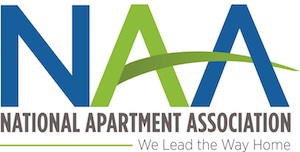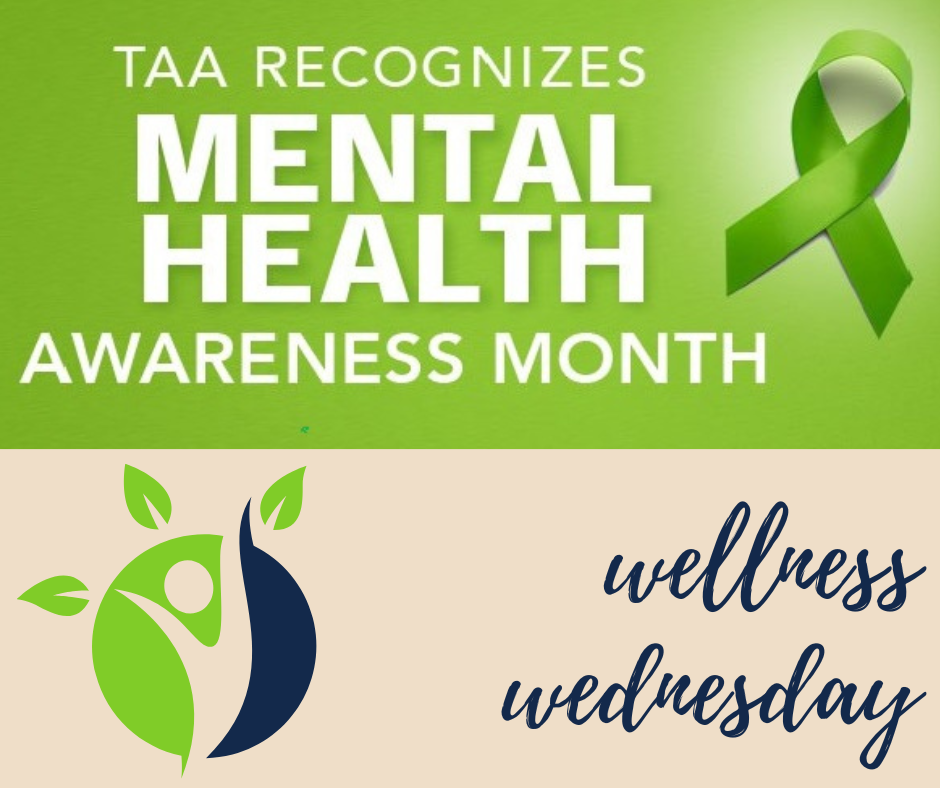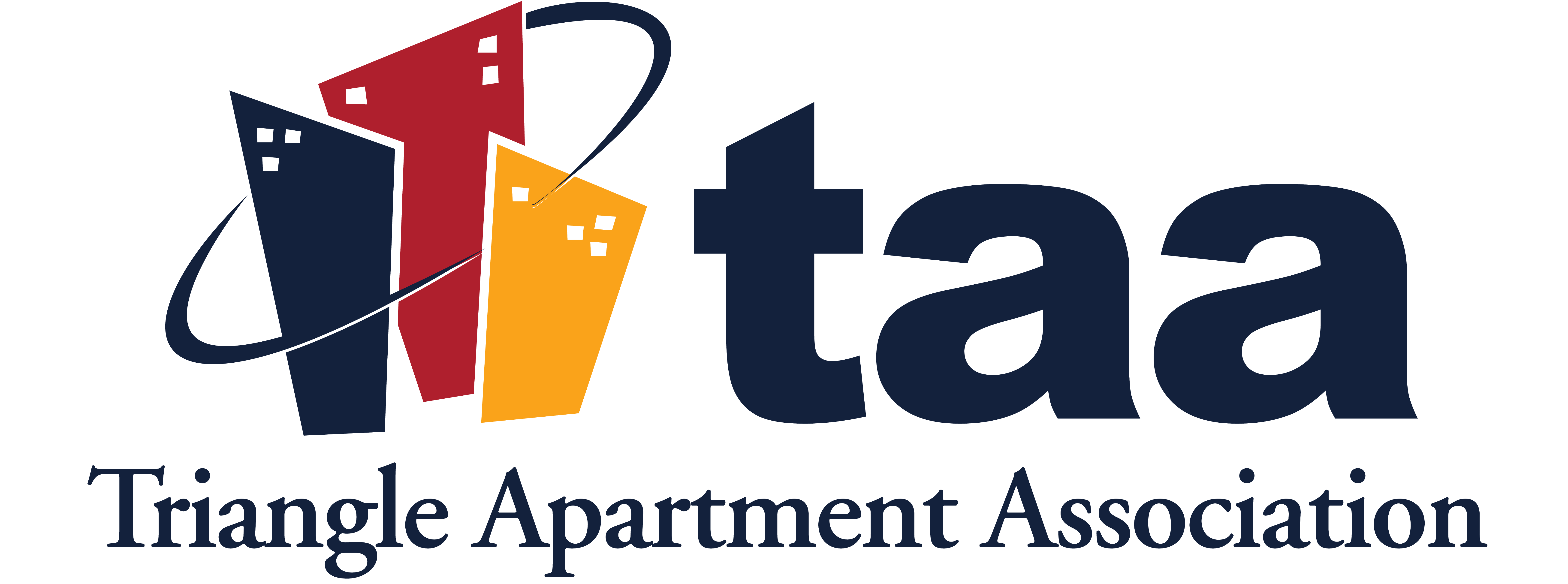TAA Recognizes Mental Health Month
|
|
Wellness Wednesday – May 31 Take a Mental Health Break! 11:11am |
Each of us experiences stressors, and sometimes you just need a ‘time out’! So, today, at 11:11am we invite you to take an 11-minute wellness break, and afterwards, post a pic of what you did at #TAAWellnessWednesday. If you can't make it at that time, anytime today works!
What to do with your 11 minutes? Suggestions from the committee include take a walk; sit in a relaxing amenity space (pool); have a healthy snack; call a family member or friend; stretch; meditate or listen to calming music.
And, speaking of calming … Mel Mah, with Calm.com shares 5 quick strategies:
- Close your eyes and take three slow, deep breaths.
- Smile at a stranger. Maybe even throw them a compliment.
- Move your body!
- Slow down as you eat.
- Find one thing a day to be grateful for.
Happy Hump Day, and here’s wishing you much success on your wellness journey!

NAA Webinar Series:
NAA’s Mental Health Awareness Week May 22-25, 2pm
Learn strategies for leaving work stress at work, understanding trauma, managing burnout plus further challenges and coping tools. Use the hashtag #NAAMentalHealthWeek to share your company’s journey through mental health and shine a light on a topic that affects us all.
Each webinar is free of charge.
- Burnout and Stress Management for Workplace Wellbeing
Monday, May 22, 2:00pm E.T. - Prioritizing Your Own Mental Health
Tuesday, May 23, 2:00pm E.T. - A Basic Mental Health Guide to Understanding Substance Abuse
Wednesday, May 24, 2:00pm E.T. - Mental Health Literacy, Self-Care and Equity
Thursday, May 25, 2:00pm E.T.
|
|
Wellness Wednesday – May 17 Active Listening: What is it and why is it important in mental health? |
What is it?
As part of communication, active listening is a structured way of listening and responding to others. When actively listening, your attention is focused on the other person in an attempt to understand, interpret, and evaluate what they are telling you. The key is to communicate without judgment.
Why is it important in mental health?
A few reasons are:
- It is the groundwork for effective communication. Active listening validates the speaker. People like to know that they are being heard and understood.
- It helps you build connections. Active listening helps others feel comfortable sharing information with you. It helps you build trust: People are more likely to confide in you when they know they can speak freely with you without judgment and interruptions.
Below are 6 steps for Active Listening:
- Practice empathy
- Avoid Judgement
- Listen without interrupting
- Ask open-ended questions
- Summarize and clarify
- Express support
Sources: Therapeutic Listening for Mental Health Challenges; CCOHS; NAMI
 |
Wellness Wednesday, May 10, 2023 There are resources available to help in almost any area of your mental wellness journey. Here's a look at 13 of the best mental health apps, as outlined by Healthline.com. |
- Best overall: Moodkit | Skip to review
- Best for therapy: Talkspace | Skip to review
- Best for meditation: Headspace | Skip to review
- Best for suicide awareness: Better Stop Suicide | Skip to review
- Best for stress: iBreathe | Skip to review
- Best for anxiety: MindShift CBT | Skip to review
- Best for addiction: Quit That! | Skip to review
- Best for boosting your mood: Happify | Skip to review
- Best for eating disorders: Recovery Record | Skip to review
- Best for OCD: NOCD | Skip to review
- Best for sleep: Calm | Skip to review
- Best for drinking less alcohol: Reframe | Skip to review
- Best for quitting alcohol: I Am Sober | Skip to review
 |
Wellness Wednesday, May 3, 2023 Mental Health and its effects permeate our local, regional, and national |
Don’t suffer in silence, you are not alone – reach out.
988 Suicide and Crisis Lifeline
24/7, free and confidential support for people in distress
https://www.samhsa.gov/find-help/988
National Alliance on Mental Illness (NAMI) / Wake County
https://nami-wake.org/crisis-info/
Community Connections Healthcare Services
Email: connections@cchs-nc.com
Website: https://www.cchs-nc.com/community-based-human-service-agency-counseling-services
Hopeline
https://www.hopeline-nc.org/
HOPE4NC
Phone: 1-855-587-3463, or, text: ‘hope” to 1-855-587-3463
BetterHelp.com
https://www.betterhelp.com

